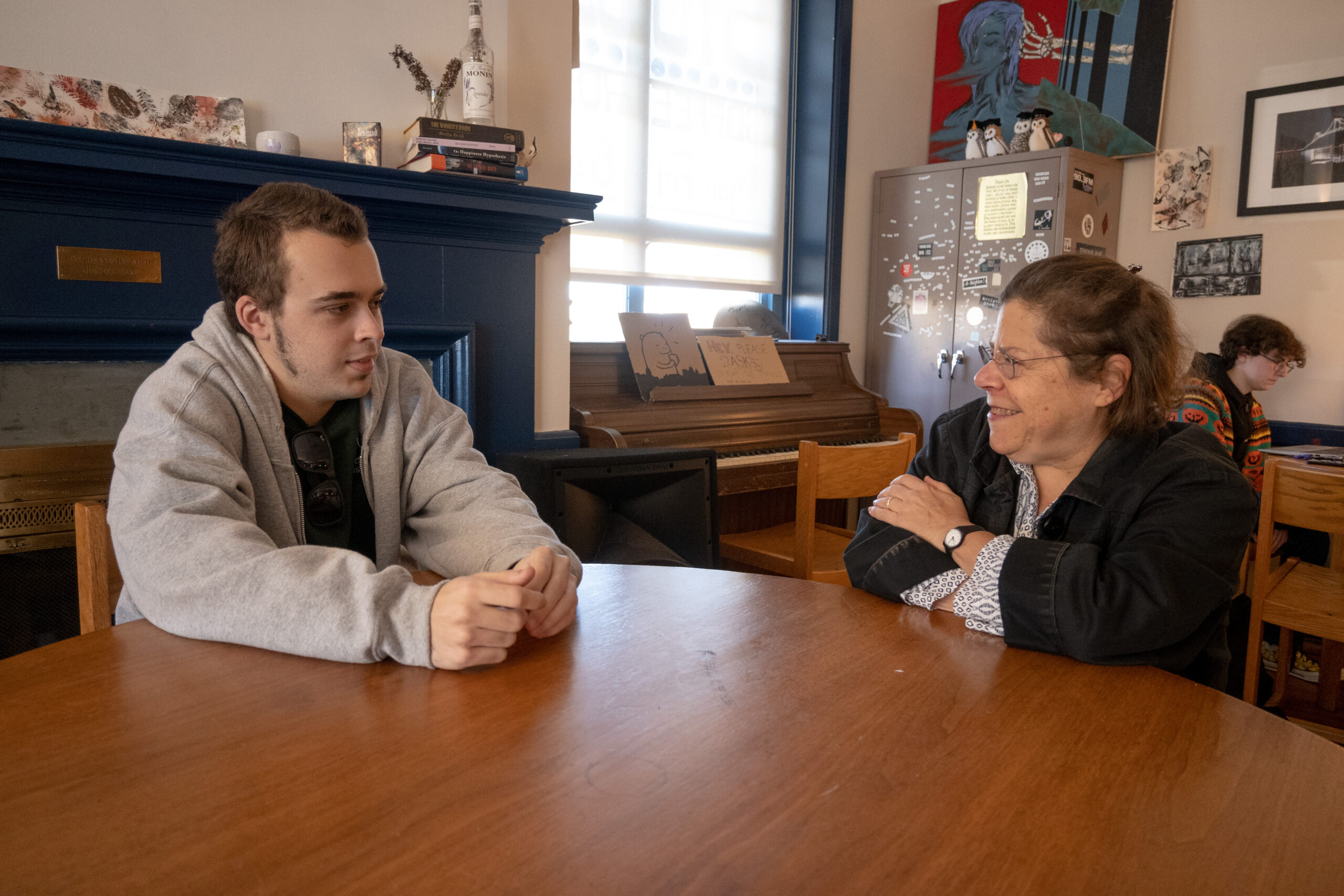English department chair Carolyn Betensky knew she wanted to be a writer from a young age. PHOTO CREDIT: Kaitlyn Chan | Contributing Photographer
Despite having lived in Paris, France, Tel Aviv, Israel, Toronto, Canada and Washington D.C, English Department Chair Carolyn Betensky has found her home in Rhode Island.
Betensky attended Barnard College, part of Columbia University in New York, where she received her master’s degree in French Literature and her Ph.D. in Comparative 19th Century Literature, and taught at George Washington University in Washington, D.C. for six years before eventually getting the opportunity to teach at the University of Rhode Island.
“I really wanted this job because I like Rhode Island very much and I wanted to be at a state school,” Betensky said. However, she makes it clear that getting the job she wanted was not as simple as having the right qualifications for the position. “Any professor you talk to, with very few exceptions, will tell you that it was their very good luck that led them to a job they love,” Betensky said.
Wanting to be a writer from an early age, Betensky eventually ended up finding her voice in a critical context and becoming a literary critic. She also decided to specifically teach at the college level because she explained she dislikes disciplining children.
“I wanted to make a difference with the skills that I had,” Betensky said.
Betensky teaches numerous English courses at URI at both the undergraduate and graduate levels, including one undergraduate course she developed herself, ENG 121: “OUTRAGE! Literature of Protest and Dissent.”
Betensky’s goals for this course revolve around getting students to “look at different strategies of expression and create meaning that can mobilize other people.”
At the undergraduate level she also teaches ENG 265: “Literary Genres: The Novel” as well as ENG 376: “Topics in Victorian Literature and Culture.” At the graduate level she teaches courses ENG 555: “Studies in 19-Century British Text,” ENG 595: “Master’s Project,” ENG 692: “Independent Graduate Study,” and more.
Betensky says she hopes to educate her students beyond getting them to understand a few new words, or explaining Charles Dickens and his never ending sentences. Her goals and lessons for her students go a bit deeper, hoping to change the way they think and see the world around them.
“I hope my students learn that the sense of normalcy and naturalness [in our current world] is historically constructed,” Betensky said.
She also hopes to empower her students and make them feel capable of changing the mold, as she teaches them that “meaning is made.”
When she is not teaching her undergraduate and graduate classes, Betensky writing her current book revolving around the “too-much-ness of Victorian 19th century British media,” meaning the copious amounts of media and its effect on citizens, as well as translating the French journalist, author and political activist Jules Vallès’ novel “The Graduate.”
According to her, books one and three of Valles’ novels have been translated, but never “The Graduate.” She said that she wanted to translate the novel because the book is “funny and moving.”
Outside of academic achievements, Betensky also started an organization called “Tenure for the Common Good” which calls on people with greater job security to speak up and speak out alongside adjunct and per course instructors who get far less benefits for their work.
“It’s just very easy for those of us with secure positions to turn our thoughts elsewhere but I think it’s very important for faculty who’ve achieved some sense of security to not forget what’s going on,” Betensky, who was an adjunct professor herself after graduate school, said.
She is also a member of the Providence based community band, “the Extraordinary Rendition Band” and plays the large brass instrument called the euphonium. This hobby of hers is not professional nor does it relate to her academic goals, but she still likes to talk about it when she gets the chance. They do community work, protests and occasionally play at weddings.
Regardless of how she is spending her time, Betensky seems to enjoy improving everyone’s outlook on the world and describing how they can make their mark on it.
“I hope my students learn that the world and the words we use in this world are theirs as well. The world is made but that doesn’t mean that my students can’t make it as well.”

